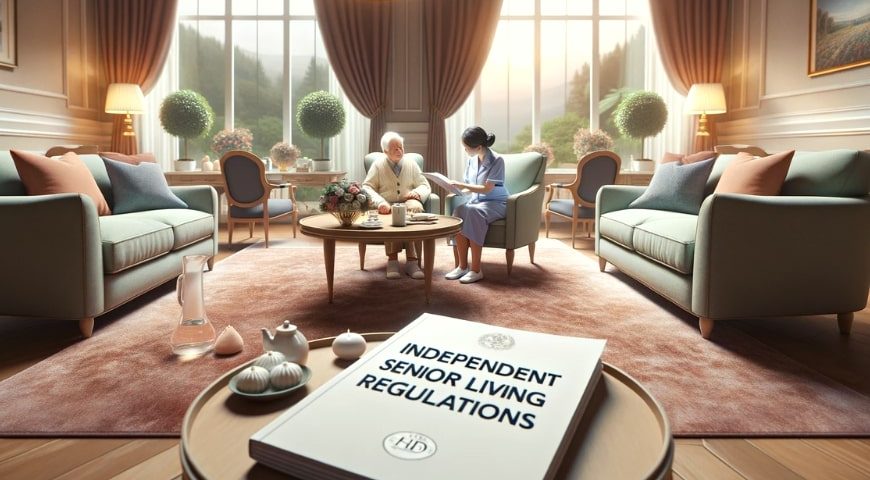In Georgia, independent senior living regulations are vital for protecting the rights and well-being of seniors. Beyond protecting seniors, these regulations are significant for businesses in senior living. This post will cover the basics of independent senior living regulations in Georgia.
A Closer Look at Georgia’s Independent Senior Living Regulations
Fair Housing Laws
The Fair Housing Act is a federal law prohibiting discrimination in housing based on race, color, religion, disability, or sex. It is essential to comply with these laws when providing housing services for seniors.
Licensing
Independent living communities may need specific licenses or permits to operate in Georgia. Requirements may vary based on the size and type of facility. These communities must undergo inspections to ensure they meet the necessary standards.
Resident Rights
Seniors residing in independent living communities in Georgia have certain rights, including privacy and self-determination. Both federal and state laws protect these rights.
Health and Safety Regulations
Facilities must maintain a safe and healthy environment for residents. It includes compliance with building codes, fire safety regulations, and sanitation standards. These regulations are in place to prevent accidents, promote cleanliness, and maintain the physical well-being of residents.
Food Service
If a senior living community provides meals or dietary services, it may be subject to regulations related to food safety. The Georgia Department of Public Health enforces these regulations.
Resident Agreements
Communities often have contracts or agreements that outline the terms and conditions of residency. These agreements should be transparent and comply with applicable state and federal laws.
Financial Transparency
Independent living communities should provide residents and their families with clear information about financial policies. Transparency in financial matters is crucial to building trust and ensuring seniors and their families can make informed decisions.
Resident Advocacy
Georgia has ombudsman programs that provide support and advocacy for seniors in long-term care facilities. These programs can help address issues and concerns raised by residents.
Medicaid Waiver Programs
In Georgia, some seniors may be eligible for Medicaid waiver programs, which can provide financial assistance for certain services.
Bottom Line
The providers of independent senior living services need to be aware of and comply with these regulations. Contact the Georgia Department of Community Health for detailed information on the state’s regulations. Facility managers should also consult legal experts for help with compliance.
Convenient Senior Living Solutions Done Right!
Canopy Senior Living is Atlanta’s most trusted, experienced, innovative senior living management company! We dedicate ourselves to creating an excellent and caring environment for our residents and team members. If you’re interested in our services, message us by contacting Canopy Senior Living.
Thanks for visiting!

